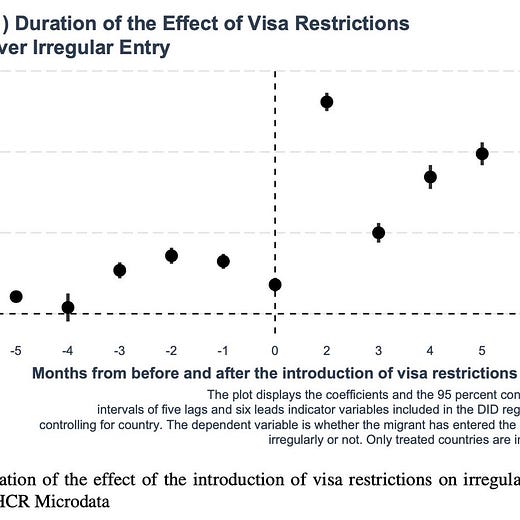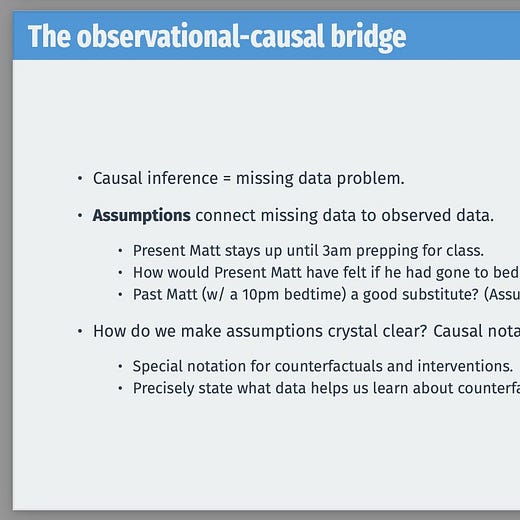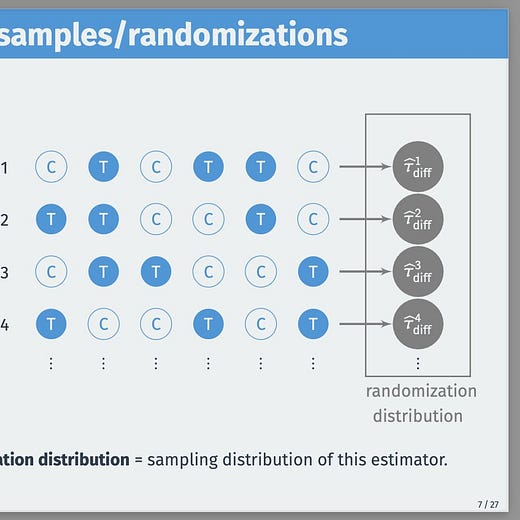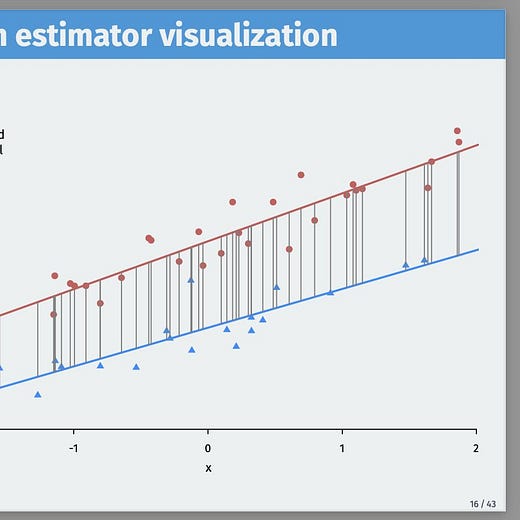Best of #econtwitter - Week of August 7, 2022 [1/3]
Aug 10, 2022
Welcome readers old and new to this week’s edition of Best of Econtwitter. Please submit suggestions — very much including your own work! — over email or on Twitter @just_economics.
This is part one of three.
Paper summaries

Matthew Jackson@JacksonmMatt
Which types of social capital best explain economic mobility? Using data from Facebook, we consider more than a dozen social capital measures and our answers appear in a pair of papers in @Nature: nature.com/articles/s4158… 1/5

9:15 AM · Aug 1, 2022
358 Reposts · 1.15K Likes
+

Johannes Stroebel@stroebel_econ
Key take-away: Economic connectedness is strongly associated with social mobility.

9:43 AM · Aug 1, 2022
6 Reposts · 37 Likes
^very nice *correlations*:

Ethan BdM@ethanbdm
The paper considers threats to causal inference in some detail (e.g., see pp. 9-12 of paper 1).
Nonetheless, I'm not super convinced on the causal interpretation side.
2/
6:59 PM · Aug 1, 2022
1 Repost · 20 Likes
^+“Awfully big claims to be based on a study whose research design is just controlling.”
---

Mara Barschkett@marabarschkett
My paper with @PeterHaan8, @diw_jgeyer, and Anna Hammerschmid was published in the Journal of the Economics of Ageing (@EconAgeing). 🎉
sciencedirect.com/science/articl…
How does raising the retirement age affect health?
In short: Health deteriorates. 🏥
8:50 AM · Aug 3, 2022
12 Reposts · 51 Likes

Leah Boustan@leah_boustan
I have a new paper out @PNASNews with Ran, @jurafsky, @dallascard and co-authors. We trace 200,000 Congressional speeches about immigration from 1870-present. Speeches are:
🔸More positive now than ever
🔸But more polarized by party
pnas.org/doi/10.1073/pn…

2:16 PM · Aug 1, 2022
79 Reposts · 383 Likes

Michael Clemens@m_clem
What is the evidence that visas divert migrants out of irregular migration?
A new, groundbreaking study finds that sudden visa restrictions against displaced Venezuelans diverted them en masse into irregular channels.
By @OmarHGallego (pdf pg. 237+)—> etheses.lse.ac.uk/4372/


2:16 PM · Aug 2, 2022
96 Reposts · 240 Likes
^more related to immigration: “Expanding prenatal coverage to undocumented immigrants makes their children healthier”

John Protzko@JProtzko
About 3 weeks ago I thought: "I wonder if behavior on economic games has been getting more selfish over time. But doing that study would be A LOT of work."
Thankfully, someone went through and found out
1956-2017, people have been getting less selfish
apa.org/pubs/journals/…

2:33 PM · Aug 1, 2022
98 Reposts · 481 Likes
^challenges with interpreting this

Anup Malani@anup_malani
@ProfWEpstein has a nice 2019 paper on long term health insurance contracts. They are an alternative to mandates or subsidies to solve adverse selection. A big problem w/ LT contract is compliance. I wonder if job lock is a solution...
@JohnHCochrane
minnesotalawreview.org
12:00 AM · Aug 2, 2022
3 Reposts · 3 Likes
^@anup_malani also summarizes here the classic Einav-Finkelstein-Cullen JEP. Related: summary of empirical lit on causal impact of health insurance

Natalia Garbiras Díaz@NGarbirasDiaz
Very happy to see our paper w/@m_montenegro_z published @AEAjournals! Electoral irregularities are still common in many democracies. We designed an experiment to test if ICT-assisted citizen monitoring of elections could be effective in reducing them (1/n)
aeaweb.org
All Eyes on Them: A Field Experiment on Citizen Oversight and Electoral Integrity

5:06 PM · Aug 2, 2022
41 Reposts · 166 Likes
Public goods

Heidi L. Williams@heidilwilliams_
It was such a pleasure co-organizing the NBER Innovation Research Boot Camp for PhD students with @Afinetheorem and @bfjo.
We had an amazing group of economists make time to teach & talk with this group.
Here’s a thread on what we covered in 11 sessions (w/ links to slides)…

9:34 PM · Aug 4, 2022
67 Reposts · 243 Likes
^obviously extremely good, also extremely good:

Caleb Watney@calebwatney
What are key, policy-relevant questions where we could use more academic research?
I spoke recently to econ PhD students at the NBER Innovation Bootcamp about holes that I think are not well-answered by the existing literature.
Here's my list of 11 in no particular order:🧵
9:30 PM · Aug 1, 2022
96 Reposts · 417 Likes

Matt Blackwell@matt_blackwell
Interested in causal inference? I updated my course last year and have posted the course materials online. If you're teaching a causal inference course, please feel free to steal my lecture notes! mattblackwell.github.io/gov2003-f21-si…




6:07 PM · Aug 2, 2022
688 Reposts · 3.73K Likes

Benjamin Vatter@benvatter
If you're on the econ job market this year, I coded this little thing to keep track of applications last year. I just updated the download links, and it seems there are already hundreds of postings across AEA/EJM/AJO!
github.com
GitHub - benjaminvatterj/JobMarketTracker: A simple economics job market application tracker

3:57 PM · Aug 2, 2022
58 Reposts · 240 Likes
Interesting discussions

Ethan BdM@ethanbdm
Hi folks. A few months back I gave a talk at Caltech.
It was the best campus visit experience I've had in quite some time. And it has made me want to change campus visit norms a bit.
So today at lunch @sgehlbach told me I should tweet about it, which I'm now doing.
1/
6:59 PM · Aug 5, 2022
52 Reposts · 441 Likes

Michael Ewens@startupecon
I admit to have freaked out a bit after seeing @toniwhited retweet this. The OP's other replies were *very* helpful additions and totally reasonable: other bias could be at play, categorical vars are weird and we assume a lot with the standard ME attenuation bias formula.


Maarten van Smeden @MaartenvSmeden
Measurement 👏 error 👏 does 👏 not 👏 mean 👏 the 👏 effects 👏 are 👏 underestimated
4:27 PM · Aug 4, 2022
4 Likes

Jon Steinsson@JonSteinsson
A few words about grad teaching. I am taking over teaching growth to the first-years at Berkeley this fall. Heavy lift given my (lack of) research expertise. 1/
4:21 AM · Jul 31, 2022
21 Reposts · 216 Likes

